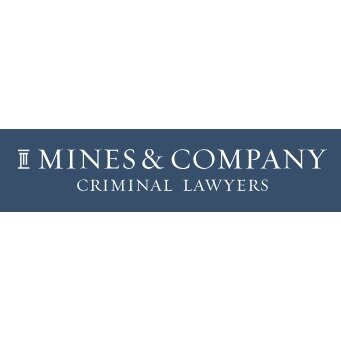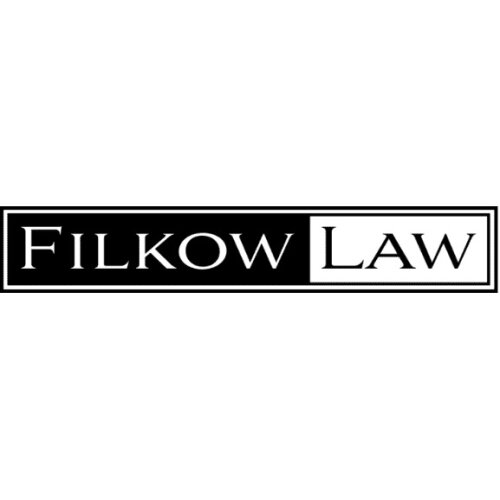Best Criminal Defense Lawyers in Vancouver
Share your needs with us, get contacted by law firms.
Free. Takes 2 min.
List of the best lawyers in Vancouver, Canada
About Criminal Defense Law in Vancouver, Canada
Criminal Defense Law in Vancouver manages offenses and their punishments under the Federal and Provincial criminal laws of Canada. In this system, offenses run the gamut from minor infractions, such as traffic violations, to major crimes like murder or drug trafficking. Further, crimes are categorized into two major sections: summary offenses, which are minor and carry lesser penalties, and indictable offenses, that are serious and carry severe penalties. The role of a criminal defense lawyer is to defend their clients in court, working towards the verdict of 'not guilty' or on reducing the severity of the sentencing.
Why You May Need a Lawyer
You might need a lawyer if you have become the subject of a criminal investigation or if you have been charged with a crime. This includes cases of assault, DUI/drunk driving, drug offenses, theft and robbery, fraud, murder, and others. Legal counsel is crucial since the potential implications can include imprisonment, hefty fines, or probation orders, among other limitations. Moreover, criminal charges can significantly impact personal relationships, career prospects and immigration status. A criminal defense lawyer will not only defend your rights but also guide you through the complex legal process.
Local Laws Overview
Vancouver follows both the Federal Criminal Code and related provincial statutes. The Federal Criminal Code lists down all the offenses and the applicable punishments and procedures. Additionally, the Canadian Charter of Rights and Freedoms protects individuals and provides rights to anyone dealing with the justice system, such as the right to counsel and right against unreasonable search and seizure. The Youth Criminal Justice Act also comes into play for defendants who are under 18 years of age.
Frequently Asked Questions
1. What do criminal defense lawyers do?
They protect your rights, develop defense strategies, negotiate plea deals, help in reducing charges, assist in case investigations, represent you in court and guide you through the complexities of the legal system.
2. What happens after an arrest?
After being arrested, you are entitled to know the reason for arrest, the right to remain silent and the right to lawyer. Anything you say to the police could be used against you in court.
3. When should I contact a lawyer?
It is advisable to contact a lawyer as soon as you are arrested or aware that you may be charged. The sooner you get legal counsel, the better you can defend your rights.
4. What does ‘innocent until proven guilty’ mean?
This means that you are considered innocent until the prosecutor convinces a judge or jury beyond a reasonable doubt that you have committed the crime.
5. What is the difference between an indictable offense and a summary offense?
Indictable offenses are serious crimes that can result in severe consequences. These include murder, sexual assault, or robbery. Summary offenses are minor, such as mischief or trespassing, and are usually punishable with a fine or a short jail term.
Additional Resources
You might find the Legal Services Society's website helpful. They offer public legal education and information, which are free resources for individuals looking for legal advice. The BC branch of the Canadian Bar Association also provides useful resources, including a lawyer referral service.
Next Steps
If you require legal assistance in Criminal Defense, it is recommended to contact a criminal defense lawyer as soon as possible. This will enable you to fully understand your rights and avail professional guidance to navigate the legal system effectively. If you can't afford a lawyer, you can reach out to the Legal Aid BC or seek advice from duty counsel lawyers who are available at all courts.
Lawzana helps you find the best lawyers and law firms in Vancouver through a curated and pre-screened list of qualified legal professionals. Our platform offers rankings and detailed profiles of attorneys and law firms, allowing you to compare based on practice areas, including Criminal Defense, experience, and client feedback.
Each profile includes a description of the firm's areas of practice, client reviews, team members and partners, year of establishment, spoken languages, office locations, contact information, social media presence, and any published articles or resources. Most firms on our platform speak English and are experienced in both local and international legal matters.
Get a quote from top-rated law firms in Vancouver, Canada — quickly, securely, and without unnecessary hassle.
Disclaimer:
The information provided on this page is for general informational purposes only and does not constitute legal advice. While we strive to ensure the accuracy and relevance of the content, legal information may change over time, and interpretations of the law can vary. You should always consult with a qualified legal professional for advice specific to your situation.
We disclaim all liability for actions taken or not taken based on the content of this page. If you believe any information is incorrect or outdated, please contact us, and we will review and update it where appropriate.
Browse criminal defense law firms by service in Vancouver, Canada
Vancouver, Canada Attorneys in related practice areas.












